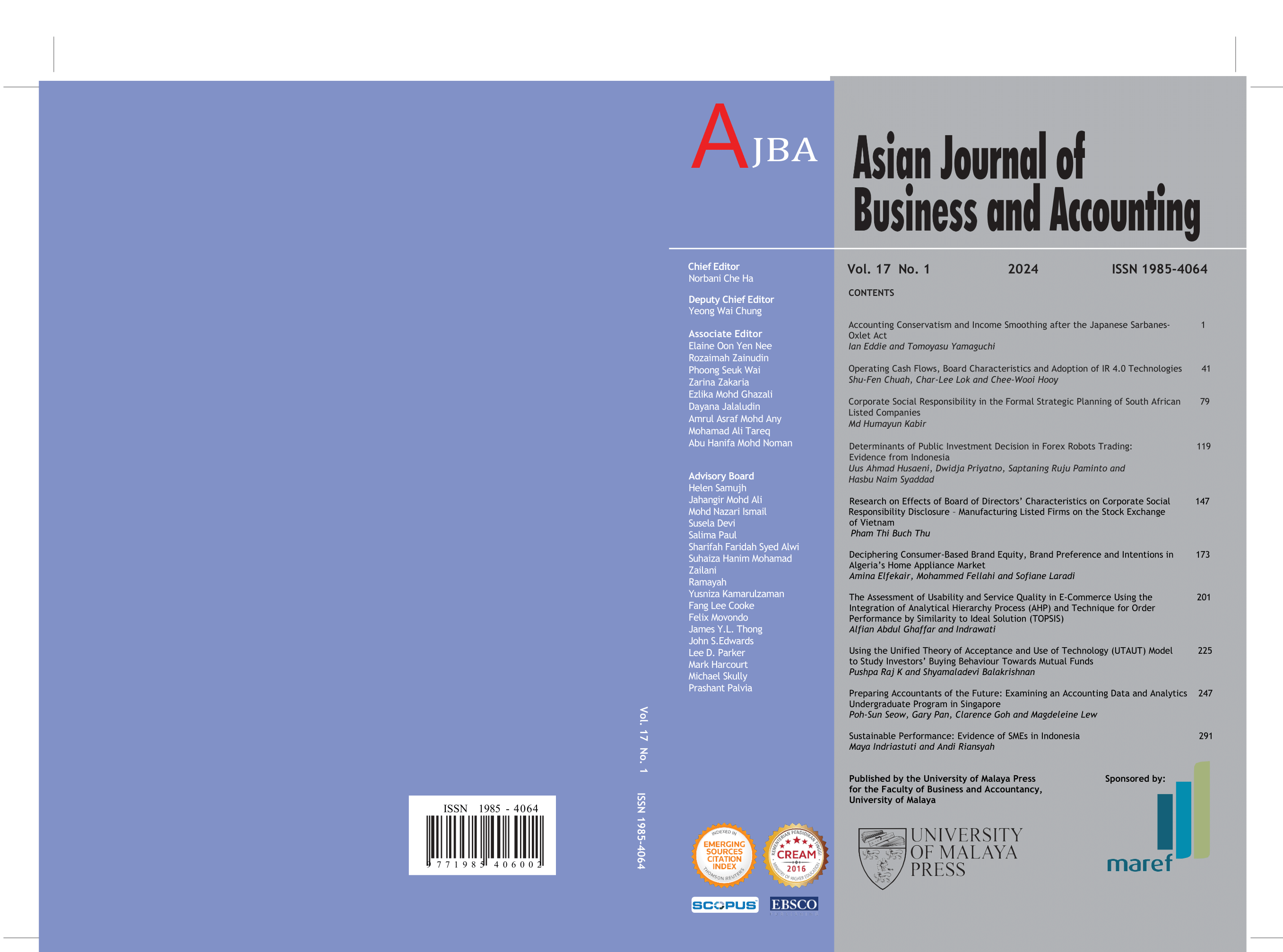Sustainable Performance: Evidence of SMEs in Indonesia
Main Article Content
Abstract
Manuscript type: Research paper
Research aims: This study aims to analyse the influence of green accounting and intellectual capital on sustainable performance, with financial performance as an intervening variable.
Design/Methodology/Approach: This research used 251 samples of Batik SMEs located in 4 cities/regencies in Central Java, Indonesia they are Semarang City, Semarang Regency, Solo City and Pekalongan Regency, which were analysed using SmartPLS.
Research findings: The research results show that green accounting has a negative effect on financial performance and sustainable performance, while intellectual capital has a positive impact on financial performance and sustainable performance. Financial performance has a positive effect on sustainable performance.
Theoretical contribution/Originality: This study contributes to achieving sustainable performance for organisations by improving processes, conveying information, and stimulating relationships between stakeholders that positively impact environmental and social performance.
Practitioner/Policy implications: This research implies that the presence of intellectual capital in SMEs improves financial performance and realises sustainable performance by considering efforts to protect the environment, reduce carbon footprints, and invest in environmentally responsible businesses.
Research limitation/Implication: This research is still limited to SMEs in 4 cities/regencies in Central Java, Indonesia, namely Semarang City, Semarang Regency, Solo City and Pekalongan Regency.
